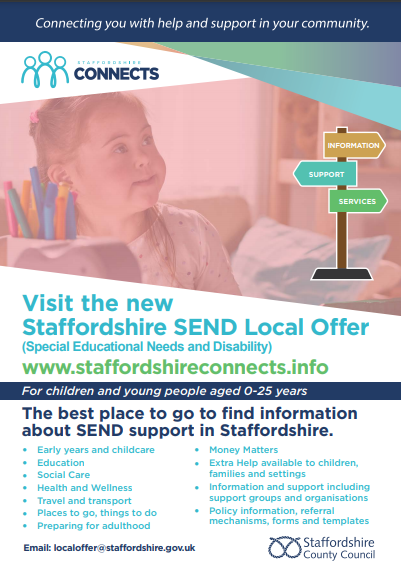SEND Information
Disabled Access:
Our school is fully accessible to people with disabilities with exterior ramps to all main entrances and the majority of classrooms. iBoards can be optimised for partially sighted pupils and, where necessary, we make use of specific audio technology in order to assist children with hearing impairments. We are now able to make use of a variety of apps on our iPads to support children with a varying range of needs.
Dealing with complaints
In the first instance, if you wish to discuss your child’s educational needs or are unhappy about something regarding your child’s schooling, please contact the following:
- The Class Teacher
- The SENDCo (Mrs S Rogers)
- The Head of School (Miss L Davis)
- The Safeguarding Lead (Miss L Davis)
- The School Governor with responsibility for SEN (Mrs A Buckley)
Complaints will be dealt with in line with the Children and Families Act 2014 and the school’s own complaints procedure.
If there is anything that you would like to discuss, please do not hesitate to contact Mrs S Rogers at your earliest convenience. Additionally, please note that the school SEN policy and the Local Offer are both linked at the top of this page and should provide further information relating to special educational needs.


